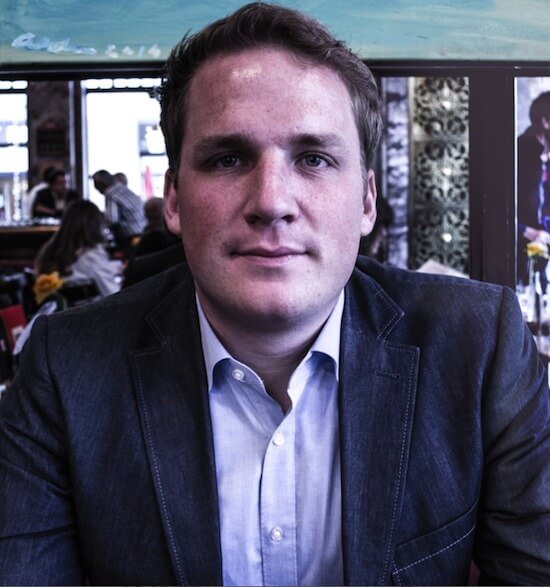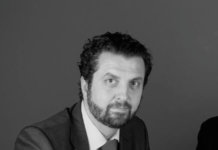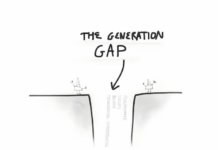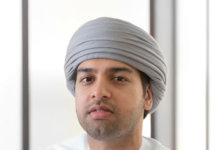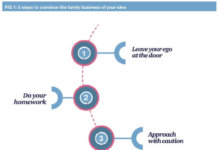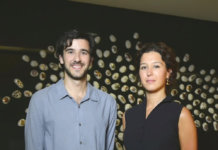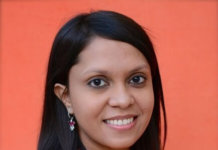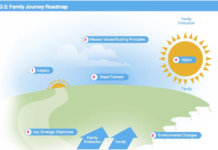Interview with Andreas Brenner, Brenner, Germany
For over half a century, the Brenner family business has specialised in optimising the stream of rest wood, recycled wood and biomass between customers and suppliers. The German family focuses on supplying the raw material to customers who range from individual farmer to multinational conglomerates and factories. The Brenners now employ a little over 100 people and have offices in Germany, Luxembourg and Switzerland.
Three years ago, Andreas Brenner joined the family enterprise, established by his grandfather Benedikt Brenner in 1953. Today, the 28-year old works side by side with his father, creating new opportunities aimed at expanding the company. Tharawat magazine spoke to Andreas about his expectations when joining the business, how he managed to find his rhythm, and what it means to be a part of Generation Y.
The three Brenner generations
Andreas Brenner embraces all queries related to his family’s business enthusiastically, elucidating the origins of the company in fine form. “In the 1950s, just after the second World War, the need to survive drove my grandfather into founding this business,” he explains. “My grandparents had a small fruit and vegetable plantation and they started to sell some firewood to local customers. When Germany had to make reparation payments to the French after the war, the government came and cut a lot of trees from the forests but failed to uproot them leaving significant parts behind. My grandfather took to the woods with some bricks of dynamite to blow out the roots and the remaining stems and started to create a stock of firewood. He got in touch with a saw miller who produced a lot of rest wood. Around the same time he heard of a tissue paper factory that required rest wood for production. He started transporting the supplies from the saw miller to the factory in 1953, eventually signing a contract that was to be renewed annually. That contract still stands today,” he details making clear just how his grandfather’s legacy remains fixed within the family business’ activities at present.
[ms-protect-content id=”4069, 4129″]
“My grandfather then also went into forest exploitation. My father, Klaus Brenner, was drawn into the business at a young age and in the early 90s, after his studies, he took over from his father. His role was to expand the company that until then had only been operational in Germany,” states Brenner. Fulfilling his appointment, Klaus Brenner expanded the business to the Benelux countries and France where the company remains active today.
Andreas joining the business was unplanned and catalysed solely by his father asking him to assist with a project. “Three years later, I am still here,” he says amusedly. “My father is my direct superior. He is running the company and he is the only shareholder.” Earlier on, it did not appear that Andreas would be working with his family as his initial trajectory found him in East Asia due to having attended business school in Hong Kong and Singapore. “I was fascinated by Asian culture and wanted to spend some more time there. After graduating I did a few internships and then started working for an Internet start-up and later a technology start-up in Switzerland. After it was acquired I did not want to stay on because I knew what would happen post-acquisition,” he says. Andreas’ attention then turned to the Brenner family business.
Past lessons, Future Gains
When you speak to Andreas Brenner today, one may easily notice a rational young man with a keen interest in technology and entrepreneurship who knows his family business inside and out. But he still remembers how he once saw the business as a boy: “When I was a little kid I just loved playing in the piles of wood around the factory. I remember that my mum hated it because it would get into our socks and everywhere else,” he laughs hinting at the mischievous little boy he once was.
“When I wanted to see my grandfather or my father, all I had to do was go to the business. It was just a huge playground,” reminisces Andreas. In spite of having easy access during his childhood, Andreas’ parents wanted his generation to be independent and unspoilt by potential prospects of an inheritance. “My parents told us that their financial responsibility ended after our education and that they would count on us to build our own lives, so they never shared much information about the business with us. Of course, my father discussed his concerns at home and would occasionally ask us how we would solve certain problems,” he clarifies.
Despite his proximity to the family firm, Andreas now feels his grasp of the company was not as firm as he imagined while growing up. “I don’t think I had a very clear view of the business until I joined. I thought I did but after three years working in the company I understand so much more,” says Andreas.
Prior to being invited into the family business fold, Andreas’ ambitions were driven by certain virtual pursuits. “As an adolescent I wanted to become a professional computer gamer. I was so dedicated that my parents would lock my computer away because I was playing too much,” he remembers. “The benefit of this hobby was that by age 14 I had made my first website and had a good understanding of programing. The computer games taught me a lot about team work because we used to play in teams of five within a virtual gaming room with tactics that had to be developed along the way,” he explains. “No one knows how old you are and you can learn from older people through their behaviour. Once I joined university however, entrepreneurship became my chief passion.”
Expectation versus reality
“I learnt to be even more independent than I was before,” Andreas offers when outlining what he initially gained from joining the family business. “My parents always let us design our own lives within reason. We had to take responsibility for our own fate. I experienced this even more when I joined the family business. My friends joined multinationals and consulting companies where they were taught exactly what tools and methods to use. In a family business things are different: My father only gave me tasks in the beginning and then let me struggle on my own,” he remembers.
“In the beginning I hated it because I was used to adhering to structures I found at school and my previous work experience. But my dad intentionally gave me very little input. Today, I love this. I could have never learnt to direct a team of more experienced people if it hadn’t have been for that time when I was allowed to be lost.”
Andreas revisits the mind-set he occupied when he left school and a world, which was methodically mapped out and theorised. “I think these models serve as a great framework, as a tool of reference, but they cannot convey the complexities of reality, especially when emotions come into play. The human factor was what I learnt to cope with. Initially, I saw many problems in the business and it took me a while to understand that it couldn’t be according to theory,” he explains.
Andreas attributes his positive experience in the family business to the relationship he has with his father, a mentor with whom he can solve problems in the business without spill-overs into their private lives. “The respect between us grew and the relationship deepened. Looking back, I am pleased that I chose to join the business,” he remarks.
Finding the discipline
With such minimal input from his father at the outset, one may wonder how Andreas set about establishing the necessary discipline required to function. “I am not hard-working, I am result-oriented,” he declares without hesitation. “I think there is a huge difference between the two. Oftentimes, the thing that takes the most time is the thing that yields the least results.”
Though steadfast in his outlook now, Andreas’ did not view things as resolutely when initially signing on. “It was difficult to build my own routine. I felt very responsible because I was getting a salary and to me that money came from my father. All of a sudden I had to figure out what to do with my time whilst I set the right goals in tandem with the company’s goals, which are of course focused on growth.” Aligning these objectives helped Andreas to structure his days. His dual role of owner and employee automatically positioned him as a trouble shooter for the family firm. “I am always going where something needs to be fixed. I also learned that in this kind of environment it is hard to set goals and stick with them because things change all the time. But setting goals, measuring my performance and being rigid about it all has been key in personally assessing my own performance,” says Andreas.
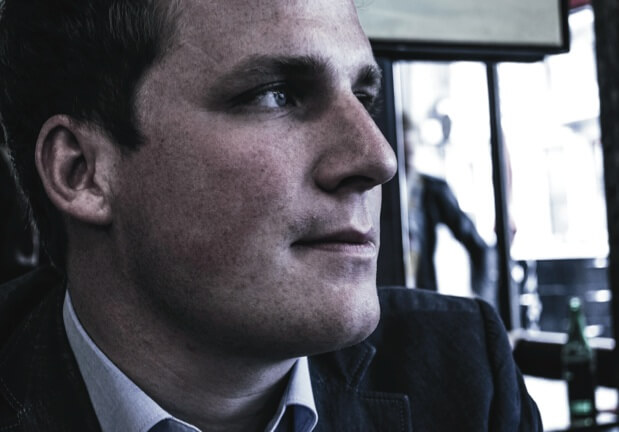
Generation Y at play
The generational differences in the Brenner family have allowed them a wider scope for effecting growth as a company. “While my parents have a global perspective through travelling, typical to our generation; my perspective is even more global because I lived abroad. My parents do not naturally feel at home in other cultures. They are open-minded but I have had the chance to have more exposure at an early age. The world is more accessible to us than it ever was to our parents,” Andreas explains.
Andreas is a proud member of Generation Y and thus speaks favourably of his peers. “I think we are efficient communicators. We are comfortable using IT in a business context. I think the way we communicate is very different from that of our parents. Another positive aspect about our generation is that we have much more global access and therefore believe less in stereotypes. We have less fear of being in touch with different cultures. We do not have the bias our parents or grandparents had. They were influenced by wars and had to overcome that prejudice over time,” he opines. “I hope that this trend will in time lead to a society that knows less bias and focuses on a new brand of global collaboration characterised by empathy.”
What can Generation Y members improve upon? According to Andreas Brenner a healthy portion of realism should always be applied. “We are taught in business school how to be managers yet we tend to develop a lack of willingness for actually getting things done. Coming into the family business, I learned that this is not how the world works. You have to create something before you can manage it,” he emphasises. “Secondly, people of our generation have access to a number of communication channels and therefore face a huge challenge when being forced to actually focus on one specific task. We tend to waste a lot of time by e-mailing back and forth instead of picking up the phone and calling someone to get the same thing done much faster. There exists a widespread obstacle of manoeuvring the advantages and disadvantages of the internet. We have to learn when to use these advantages but we also have to learn not to use them when they’re impeding progress.”
Working in a family business, where the bulk of transactions are completed with a handshake rather than with a contract, necessitates intuition as a key attribute amongst family business members, explains Andreas. “I think that our generation tends to over-professionalise and over-complicate business transactions. We learn the professional approach at school but we have to learn when to apply all the tools that we have been given and when just to use our street smarts,” he explains.
Whether the family business is a career opportunity for Generation Y members depends on the industry, governance structure, and educational background of each generation, he says. “We are in a different position than previous generations. My grandfather’s challenge was naturally given, my father was already in a better position, and I was told that I could do whatever I like and could join the family business if I wanted to.” According to Andreas, circumstances define whether it makes sense for the next generation to join the business. “There has to be a match between the industry the business is active in and the educational background of the next generation. Also governance is key as it makes a great difference whether you enter a business run by a patriarch or one that has a more diversified power structure,” he says.
Members of Generation Y are known to be driven by passion but Andreas Brenner maintains that the conditions present are crucial. “At the point where your food is on the table and your rent is secured you start caring for work-life balance. But if you struggle for survival you care about very different things. So what drives Generation Y members will differ from location to location. Self-actualisation starts when circumstances allow it.”
Tharawat Magazine, Issue 23, 2014
[/ms-protect-content]


